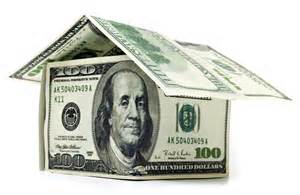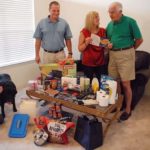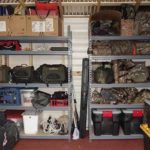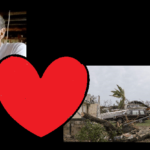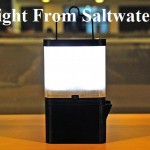Some posts may contain affiliate links
Financial Prepping for Natural Disasters
Just What Does Your Insurance Cover?
Most people realize they need a financial cushion to fall back on should they suffer a job loss or require a moderate leave due to illness. It is generally excepted that having 6 months of the total of all monthly expenses set aside is the minimum for backup funds. Being the responsible folks we are we also carry health insurance, auto insurance and homeowners insurance or renters coverage.
As it nears time for me to renew my homeowners policy. I am realizing there are some riders that I need to take a closer look at regarding natural disasters. When you insure your home or vehicle you expect all acts outside your control that cause damage to your home to be covered right? Wrong! The basic coverage tends to cover those items of a natural nature that are most unlikely to happen!
An example I saw when researching this would be your policy says rain damage is covered. So IF you have maintained your roof properly and there is a heavy down pour and your well maintained roof leaks…you’re covered. However, if during that same rain storm your roof because it was well maintained did not leak, but the creek on the neighbors property over flows and the run off leaks into your equally well maintained basement. You are NOT covered! Your roof leak would have been covered because you had done everything possible to keep the roof water tight and the rain which fell from the sky caused damage you could not avoid. You took the same responsible upkeep steps to your basement. But any damaged caused by the rain AFTER it hit the ground is considered flooding, not rain and therefor not covered! Flood insurance is a rider item you add to your basic insurance. The closer to a floodplain you are the more this rider costs.
I happen to live in the cross hairs of mother nature! I am just outside a floodplain, outside an eruption zone and in a state that is prone to earthquakes and wind storms. So in my personal situation I need to evaluate the possible damage to my property from these particular disasters. The only one covered in my basic homeowners policy is wind damage.
If your particular property is resistant to any natural disaster you could do your own evaluation as to if you should self insure for the possibility. Self insuring is a bit risky and you must allow for the rising cost of supplies. You would take the possibility of the considered natural disaster and weigh it against the probability that it could happen in your area. If it did, what are the most likely damages to your property? How much would it cost you to repair those damages including labor? Are those costs lower than the annual premiums and over what period of time would you have to save that amount before it would be less costly to put the money away yourself rather than pay the premium?
This would also have to be a fund where you would faithfully put in money and never withdraw unless you are hit by disaster. The Pros to self insuring are that if you eventually move or sell the property the funds return to you. The Cons are that you may underestimate the damage or the cost of repairs or not have enough time to save up enough to cover these costs.
For myself, I will determine which disaster is most likely to cause the most damage to my own property and then weigh it against the price of the riders required to my insurance and pick and choose which riders are the best option for my property. For help making these kinds of decisions and to find out what is covered and what isn’t check out the link below.
Does home insurance cover natural disasters?
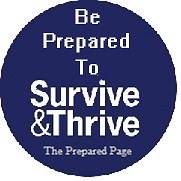 This is an aggregated site. Please be aware some of the sites we link to could have pop ups. We have no control over them. However, we will never link you to a site that requires you to make any purchase or join anything to view the blog.
This is an aggregated site. Please be aware some of the sites we link to could have pop ups. We have no control over them. However, we will never link you to a site that requires you to make any purchase or join anything to view the blog.
Please read our disclaimer. We provide you with information from various sites all over the world. The author’s expressed opinion isn’t necessarily that of The Prepared Page or its staff. Our intent is to bring you the information. Use your common sense and your own best judgment when using any information contained within the blogs.
While you’re here check out some of those other posts you may find them interesting!!!
Some posts may contain affiliate links

